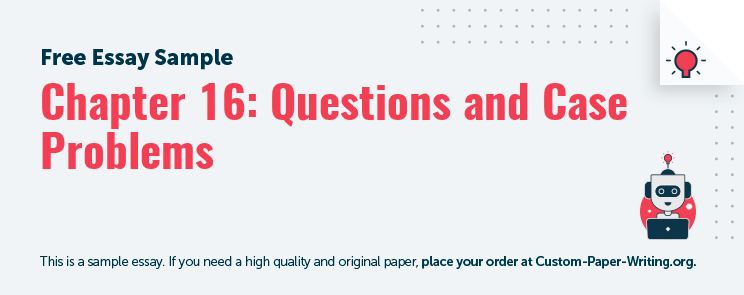
Question 1
“In pari delicito” is a situation whereby the court cannot find either party in a case guilty because they are equally culpable. Thus, neither the accused nor the plaintiff can be justly held liable. In such a situation, the court leaves the parties where it has found them in the sense that it cannot intervene in the case and find one of them guilty. A good example is the event where an insurance company refuses to pay a claim because of a violation on the part of the claimant. In such a case, the first one may be at fault for having taken premiums and being unable to pay, but the violation by the second party makes them equally guilty. In essence, the agreement between the insured and the insurance company is considered illegal, and in this case, the latter can remain unpunished (Burkhart, 2008). Furthermore, since the claimant has misled or failed to comply with the terms of the insurance, the insurance company does not have to honor its part of the agreement. However, the court does not find the latter guilty because this will justify its stance to take premiums and not honor the agreement with customers. The premise of the “in pari delicito” ruling is that it states that both parties are wrong, and neither of their violations were intentional. For example, if the insurance company deals with a client who does not meet his or her credentials for an insurance policy and later refuses to pay a claim, this cannot be considered as an equally guilty situation. Therefore, the court only considers the situation being in pari delicito when defendant’s actions were not meditated and the one was misled by the plaintiff in one way or another.
Calculate the cost of essay
Question 2
Iwen’s case cannot be resolved through arbitration solely because the clause that binds him to this type of resolution is procedurally unconscionable. It line with this, when one party in an agreement uses unfair leverage over the second party, it becomes unacceptable in the sense that the plaintiff is not likely to achieve justice. Based on the facts in this case, it is clear that Iwen is at the mercy of the publisher, and without the intervention of the court, he is not likely to obtain a fair judgement. Thus, he can sue the publisher through arbitration on the grounds of the absence of a real negotiation or any justice. Moreover, the company is not likely to pay damages that the plaintiff has suffered due to its mistakes. In this case, it is important for Iwen to consider that he has been subjected to an element of surprise and can argue against the publisher’s attempt to corrode the contract with the hidden terms limiting his ability to get a fair resolution of his grievances (Sandu & Pagarin, 2012). In line with this, procedural unconscionability will work against the company by attempting to even out the odds that are currently against the plaintiff. The publisher has conveniently provided its potential clients with contracts of adhesion, which give it a superior bargaining power, which it can use to get out of any possible claims of the breach of contract. In this case, the court should be able to determine that Iwen’s claims are justified and that he cannot rely on arbitration with a party that has already denied him any justice. It means that solving the case through arbitration will not give the plaintiff a just outcome. Thus, the court of law will be a better option if the claim is to be heard and treated with seriousness that it deserves.
- Share this post with your friends:

